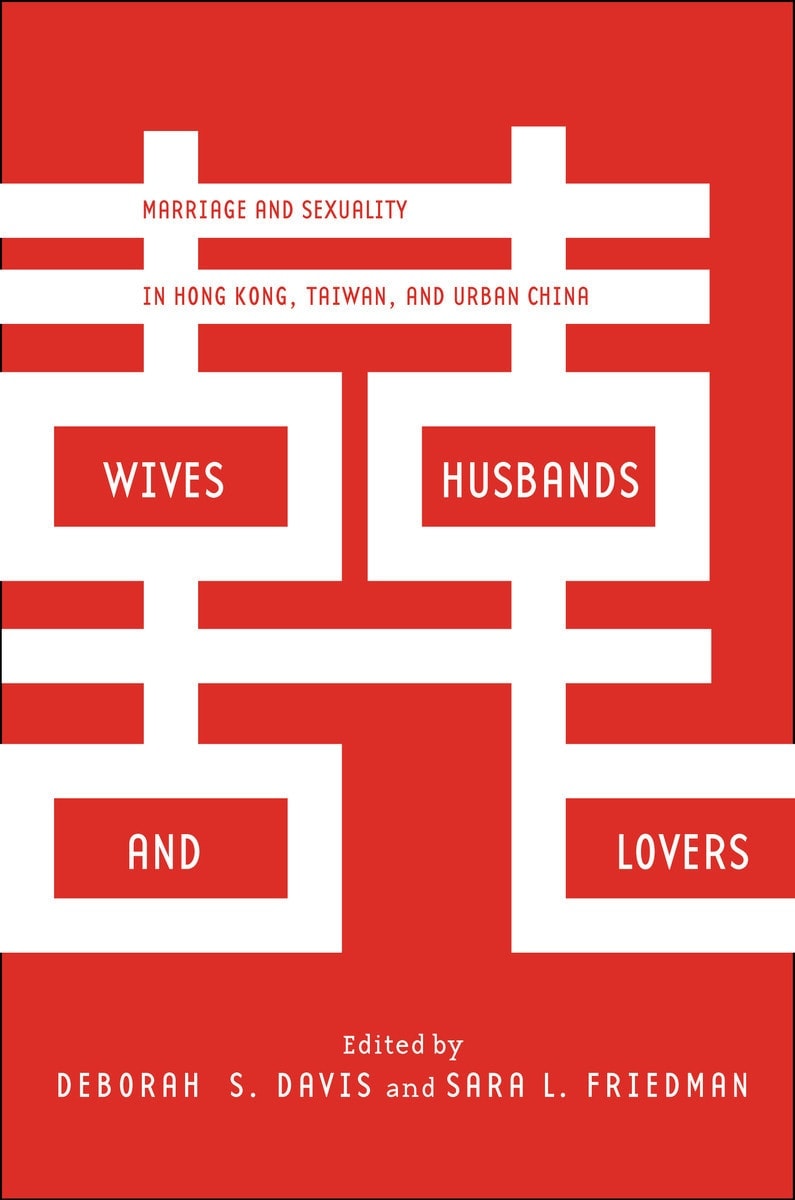Social scientists have repeatedly looked at the institution of marriage, and at the pivotal role it plays in many societies’ production and reproduction. In the case of China, different models of marriage and of domestic relations have been key to state-led projects of modernisation and nation-building in the past as well as in more recent times. With the volume Wives, Husbands and Lovers: Marriage and Sexuality in Hong Kong, Taiwan and Urban China, Deborah Davis and Sarah Friedman offer us an excellent and much needed update on the state of marriage in present day Chinese-speaking societies.

The authors largely build on works that looked at marriage and the family in China during the late 1980s and early 1990s, tackling many of the issues raised by that literature: courtship, family law, property and gift exchange, intergenerational relations and the nexus between production and reproduction. This continuity facilitates the acquisition of a historical perspective on these topics even for those readers who are not familiar with Chinese society and history. In addition, the papers in this collection touch upon topics that tend to be left out from research on marriage, precisely because they depart from the realm of official institutions: youth culture, love affairs, commercial sex, and the many entanglements between love and money, romance and duty, sexuality and reproduction.
These fresh reflections counterbalance the rigorous analysis offered in these papers, highlighting that such a complex institution as marriage cannot be deconstructed without attention to the unofficial practices that surround and often sustain it.
Readers who are new to the study of Chinese society will find in this book a reliable introduction to marriage, family politics and sexuality in mainland China, Taiwan and Hong Kong; scholars of China will enjoy engaging with the different, sometimes diverging arguments put forward by the different contributors. The variety of voices and opinions presented in the volume is not a weakness of this collection, but an adequate reflection of the urgency that pervades debates on marriage, family and sexuality in mainland China, Hong Kong and Taiwan. These often heated discussions highlight that Chinese societies are far from being free from tensions and conflicts, as foreign observers tend to imagine them. Most importantly, however, the urgency of these debates points to the importance that the institution of marriage maintains for social reproduction in these societies.
In mainland urban China, in particular, the new provisions in family law and the richly-documented changes in courtship practices have not, so far, hindered the strength of heteronormative marriage; this institution remains a quasi-universal passage into adulthood, a pre-requisite for legitimate childbearing, and an essential milestone in the trajectory towards old-age material and emotional security. It is all to see whether the importance of heteronormative marriage in mainland China will soon diminish, as some authors suggest. This latter hypothesis seems plausible for discrete social groups in a large and cosmopolitan metropolis like Shanghai; on the other hand, the rest of the country may not be set on a progressive trend towards the values that many people in mainland China see as specific to the ‘Shanghai middle class lifestyle’.
In this respect, while editorial limits may have prevented the inclusion of a section on small-town China, this comparative collection would have benefited from at least one contribution from a different city in the Mainland.
This book constitutes a timely and much-needed contribution to the study of marriage, family and sexuality in mainland China, Taiwan and Hong Kong. The collection also exemplifies the value of interdisciplinary dialogue and collaboration, bringing together ethnographic insights, legal competence and rigorous sociological analysis in order to deconstruct complex social and institutional conundrums. This book is a must-read for all social scientists working on love, marriage and the family in east Asia; it remains a state-of-the art publication on marriage and the family that students of contemporary China may use as key reference; finally, it would be of great help to all those social scientists looking at how courtship, marriage and family politics evolve around the globe.
Davis, Deborah S. and Friedman, Sara L. 2014. Wives, Husbands and Lovers: Marriage and Sexuality in Hong Kong, Taiwan and Urban China. Stanford: Stanford University Press. 344 pp. Pb: £19.50. ISBN: 9780804791847.






